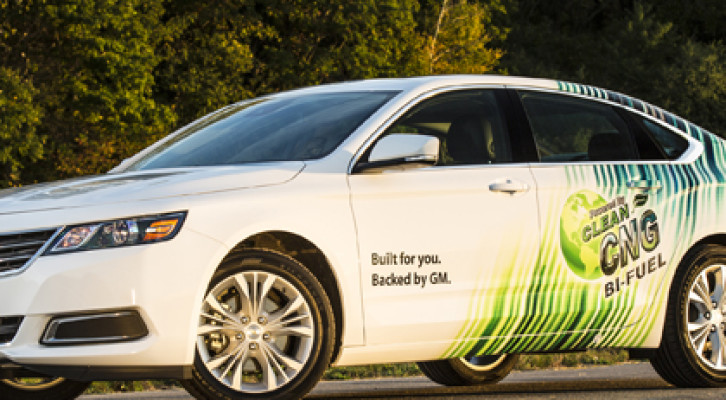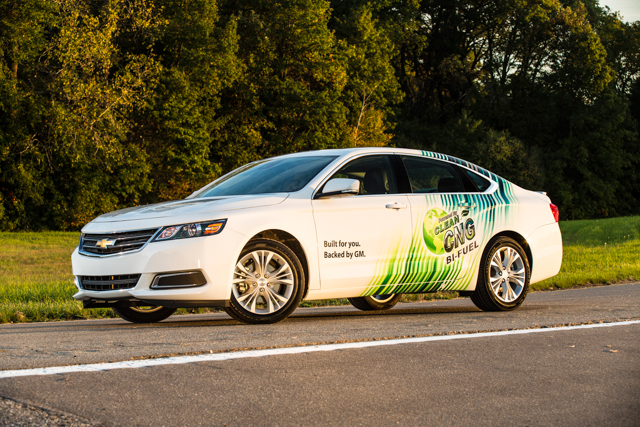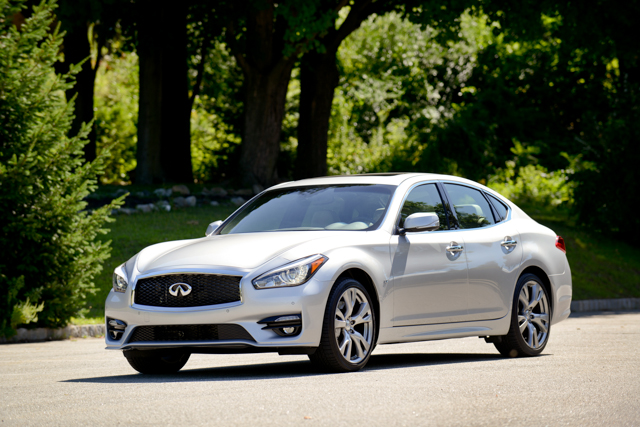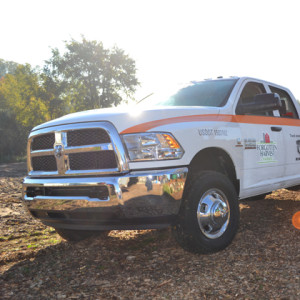Further broadening the alternative-fuel options, Chevrolet announced plans to produce an Impala with the ability to burn gasoline or compressed natural gas (CNG). Natural-gas fleet vehicles, mostly trucks, are nothing new, but the Impala will be the only full-size bi-fuel sedan available directly from the factory, and it’ll be on sale to fleet and retail customers next summer.
CNG offers reduced emissions and lower fueling cost compared to gasoline, as well as reducing dependence on foreign oil. It’s no coincidence that Chevrolet announced the bi-fuel Impala on the anniversary of the OPEC Oil Embargo of 1973.
CNG is less efficient than gasoline over the road, so the Impala is able to switch from one to the other seamlessly, extending total range to about 500 miles. Thanks to fleet sales and many years of development, the components required to burn CNG are affordable and covered by GM’s warranty, and pricing for the bi-fuel Impala should be reasonable as well. GM expects volumes to be limited, with a maximum of 500 to 1000 sales the first year limited mainly by the public availability of CNG. There are about 1200 CNG fueling stations nationwide, as compared to over 168,000 gas stations.
At the introduction of the vehicle, which took place at the “OPEC Oil Embargo + 40: A National Summit on Energy Security” sponsored by Securing America’s Future Energy (SAFE), GM chairman and CEO Todd Akerson spoke of pushing harder to build a viable CNG infrastructure.
“We know that U.S. energy security won’t come from a one-off moonshot,” Akerson said. “It will flow from our systematic investment in technology and innovation… our drive to get more from existing energy sources and renewables… our commitment to conservation… and it will be assured by fully and safely exploiting our shale gas reserves.”
About the Impala, he added, “There will be nothing like it on the road – literally.”





